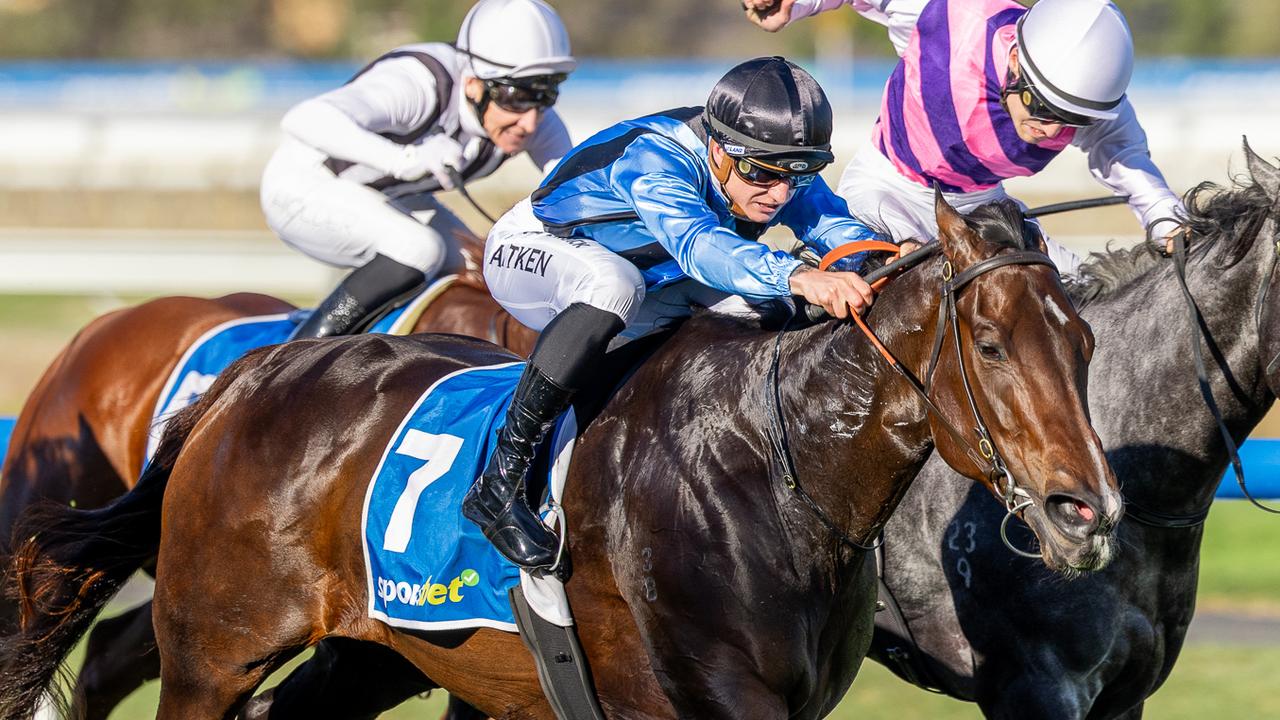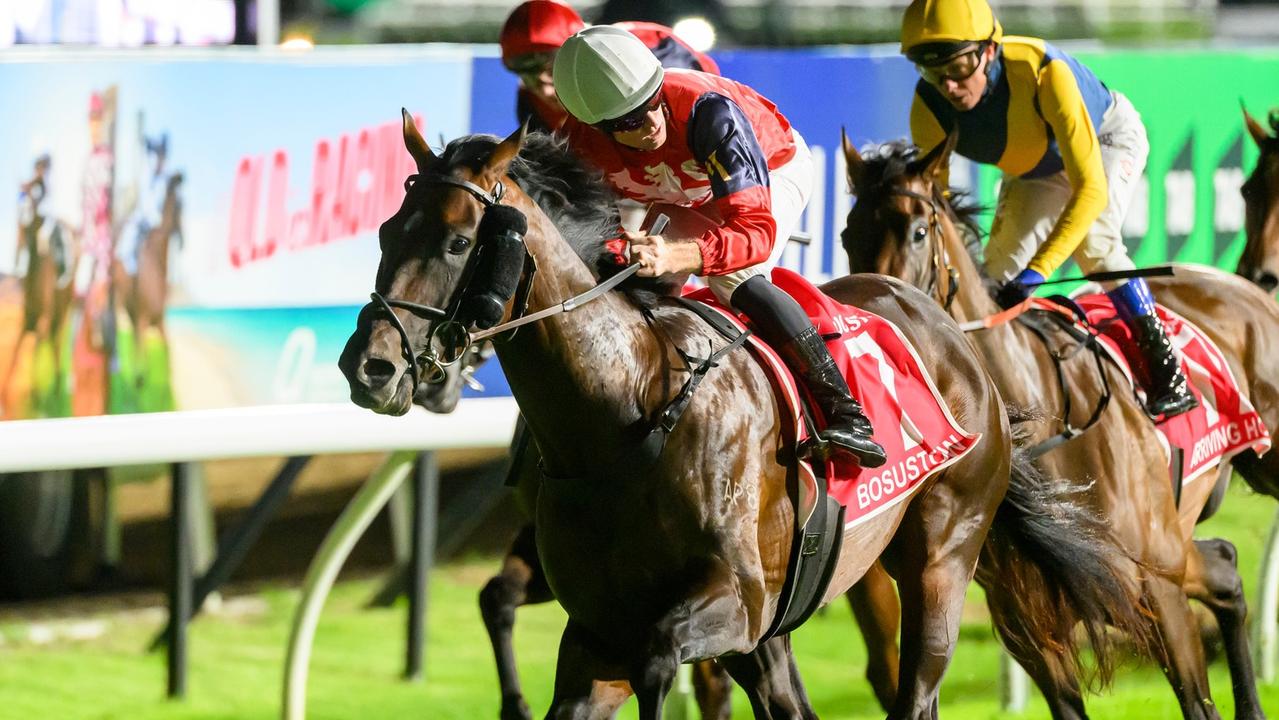Historical data to help you back the Melbourne Cup winner
Tuesday’s 164th running of the Melbourne Cup will see 24 finely tuned equine athletes line up for the race which stops the nation – it’s no ordinary event.
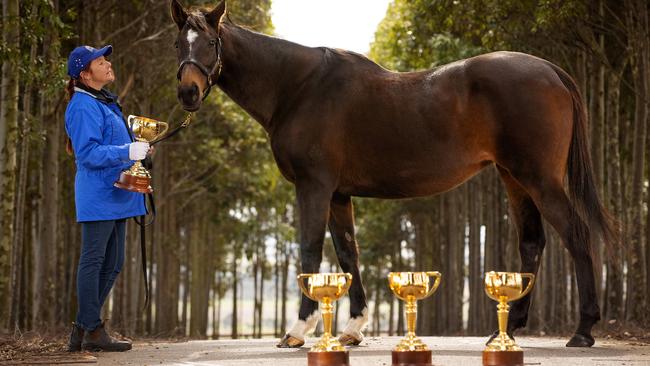
Horse Racing
Don't miss out on the headlines from Horse Racing. Followed categories will be added to My News.
Tuesday’s 164th running of the Melbourne Cup will see 24 finely tuned equine athletes line up for the race which stops the nation – it’s no ordinary event.
And finding the winner is no ordinary feat, however history gives us some decent insights into what to look for.
Historical facts and figures are a popular way for people to pick their Melbourne Cup selection so here’s your history lesson ahead of Tuesday’s great race.
Here is a quick look at historical facts, since Archer won the first Melbourne Cup back in 1861, 163 years ago.
Good luck.
The history of the Melbourne Cup in facts and figures
The first Melbourne Cup was run on a Thursday, November 7, it was first run on a Tuesday in 1875.
The race has been postponed twice, both times due to rain, in 1870 and again in 1916.
During the War years – 1942 to 1944, the race was run on a Saturday, the second day of a two-day Cup carnival.
■ ■ ■ ■ ■
Multiple Melbourne Cup winners
Champion mare Makybe Diva is the only horse to have won three Melbourne Cups (2003, 2004, 2005).
Four horses have won the race twice – Archer (1861, 1862), Peter Pan (1932, 1934) Rain Lover (1968, 1969) and Think Big (1974, 1975).
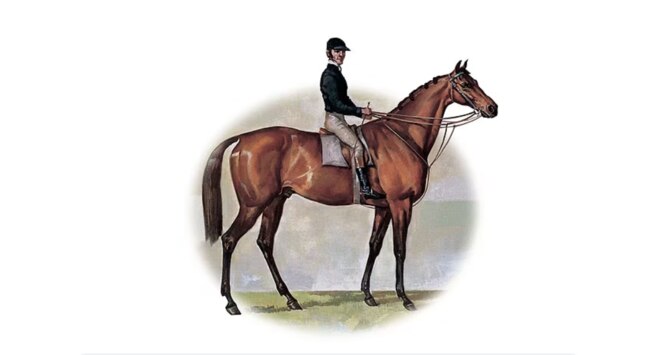
■ ■ ■ ■ ■
Caulfield Cup – Melbourne Cup winners
There have been 12 winners of the big Cups double with two this century, Without A Fight in 2023 and Ethereal in 2001.
The others were Poseidon (1906), The Trump (1937), Rivette (1939), Rising Fast (1954), Even Stevens (1962), Galilee (1966), Gurner’s Lane (1982), Let’s Elope (1991), Doriemus (1995) and Might And Power (1997).
■ ■ ■ ■ ■
Most Melbourne Cup Wins – Trainer
12 wins – Bart Cummings (1965, 1966, 1967, 1974, 1975, 1977, 1979, 1990, 1991, 1996, 1999, 2008)
Current trainers – 2 wins for Joseph O’Brien (2017 and 2020) and Robert Hickmott (2012 and 2016).
Mike Moroney (2000), Sheila Laxon (2001), Graeme Rogerson (2007), Mark Kavanagh (2009), Gai Waterhouse (2013), Danny O’Brien (2019), Chris Waller (2021), Ciaron Maher and David Eustace (2022) and Anthony and Sam Freedman (2023) have won the Melbourne Cup once.
Ciaron Maher and David Eustace became the first training partnership to win the race courtesy of Gold Trip’s success in 2022 and father son training team of Anthony and Sam Freedman emulated the feat in 2023 with Without A Fight.
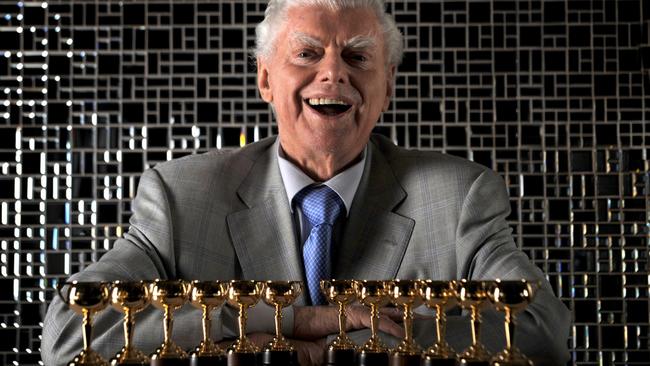
■ ■ ■ ■ ■
Most Melbourne Cup Wins – Jockey
Bobbie Lewis (1902, 1915, 1919, 1927) and Harry White (1974, 1975, 1978, 1979) hold the record with four wins each.
Current riders – 3 wins for Kerrin McEvoy (2000, 2016, 2018) while Mark Zahra has won the race twice (2022 and 2023).
Blake Shinn (2008), Craig Williams (2019), Jye McNeil (2020) and James McDonald (2021) have won the race once.
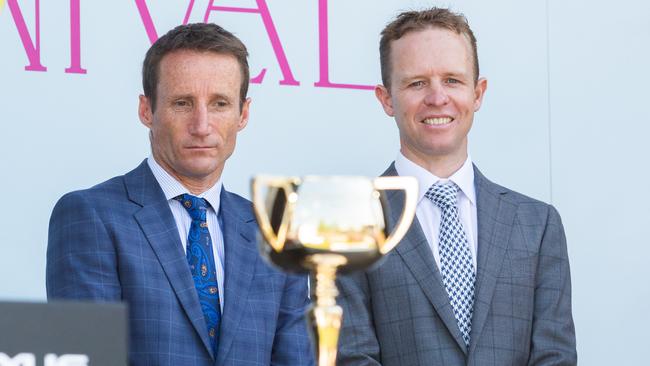
■ ■ ■ ■ ■
Melbourne Cup Female Jockey Facts
Michelle Payne is the only female jockey to win the Melbourne Cup – Prince Of Penzance in 2015.
Maree Lyndon was the first female to ride in the Melbourne Cup aboard unplaced Argonaut Style in 1987.
The first Australian female jockey to ride in the Melbourne Cup was Claire Lindop aboard the unplaced Debben in 2003.
Of the current crop of female riders, Jamie Kah has ridden in the race three time, her best result was a third placing on Prince Of Arran in 2020 while Rachel King rode in the race the past two years and she finished 10th in 2023 on Military Mission.
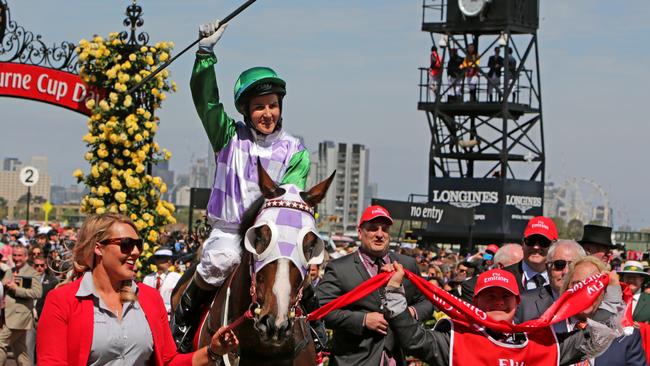
■ ■ ■ ■ ■
Most Melbourne Cup Wins – Owner
Lloyd Williams has won the Melbourne Cup on seven occasions (1981, 1985, 2007, 2012, 2016, 2017, 2020).
Australian Bloodstock proprietors Jamie Lovett and Luke Murrell have won the race twice (2014, 2022).
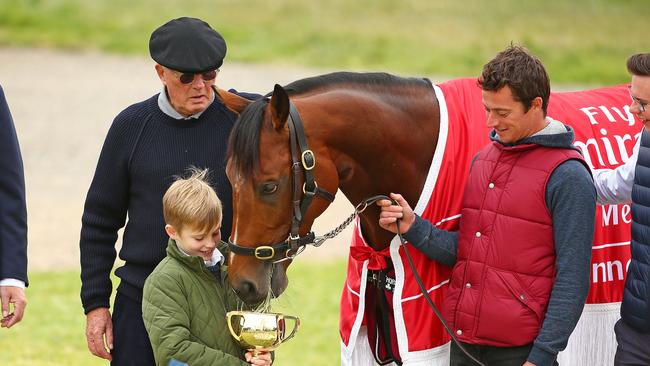
■ ■ ■ ■ ■
Melbourne Cup Barrier Statistics
Barrier 11 has been the most successful stall producing eight winners; most recently launching Americain to victory in 2010. Barrier 5 has won the race on seven occasions.
The last time the same Melbourne Cup barrier produced back-to-back winners was in 2012 and 2013 when Green Moon and Fiorente won from barrier 5.
Without A Fight’s winning barrier last year was 16.
The last Melbourne Cup winner to salute from the outside barrier was Brew (2000).
Barrier 18 produced its first winner in 2021 when Verry Elleegant won the race.
Barrier 7 and 15 have also only produced one Melbourne Cup winner.
Since 1982, 40 years ago – barriers 6, 7, 12, 15 and 24 have not produced a Melbourne Cup winner.
Barrier – Wins – Last winner
Barrier 1 – 5 wins – Prince Of Penzance (2015)
Barrier 2 – 3 wins – Twilight Payment (2020)
Barrier 3 – 3 wins – Media Puzzle (2002)
Barrier 4 – 5 wins – Rekindling (2017)
Barrier 5 – 7 wins – Fiorente (2013)
Barrier 6 – 5 wins – Light Fingers (1965)
Barrier 7 – 1 wins – Blackwood (1924)
Barrier 8 – 5 wins – Viewed (2008)
Barrier 9 – 4 wins – Efficient (2007)
Barrier 10 – 5 wins – Protectionist (2014)
Barrier 11 – 8 wins – Americain (2010)
Barrier 12 – 2 wins – Foxzami (1949)
Barrier 13 – 4 wins – Gold Trip (2022)
Barrier 14 – 6 wins – Makybe Diva (2005)
Barrier 15 – 1 wins – Silver Knight (1973)
Barrier 16 – 4 wins – Without A Fight (2023)
Barrier 17 – 5 wins – Almandin (2016)
Barrier 18 – 1 wins – Verry Elleegant (2021)
Barrier 19 – 6 wins – Cross Counter (2018)
Barrier 20 – 2 wins – Empire Rose (1988)
Barrier 21 – 5 wins – Vow And Declare (2019)
Barrier 22 – 2 wins – Gurner’s Lane (1982)
Barrier 23 – 3 wins – Brew (2000)
Barrier 24 – 3 wins – Gala Supreme (1973)
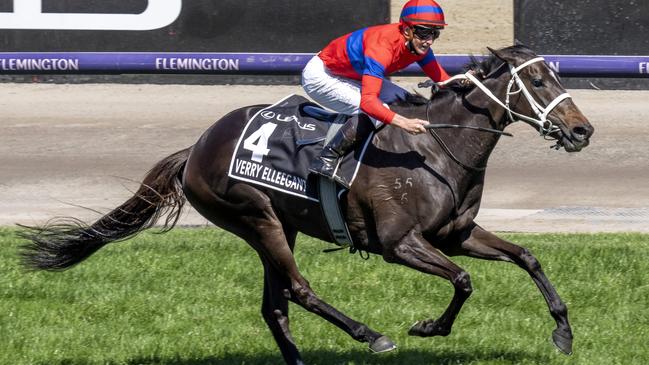
■ ■ ■ ■ ■
Melbourne Cup Saddlecloth Statistics
Number 4 is the most successful Melbourne Cup saddlecloth boasting 12 wins after Verry Elleegant carried that number to victory last year.
Numbers 1 and 12 has produced 11 winners. Gold Trip was a winning topweight in 2022 while Makybe Diva was the last horse to carry saddlecloth 12 to victory in 2003. Number 6 has won the race nine times – Twilight Payment carried No. 6 to victory in 2020.
Prior to Gold Trip’s win in 2022, Makybe Diva in 2005 wore saddlecloth No. 1 and the previous topweight to win the race prior to that was Rising Fast in 1954.
Without A Fight wore saddlecloth 3 when winning the Melbourne Cup last year.
The unluckiest Melbourne Cup saddlecloth is No. 18 – last carried to victory by Peter Pan in 1932.
Saddlecloth – Wins – Last winner
Saddlecloth 1 – 11 wins – Gold Trip (2022)
Saddlecloth 2 – 7 wins – Delta Blues (2006)
Saddlecloth 3 – 6 wins – Without A Fight (2023)
Saddlecloth 4 – 12 wins – Verry Elleegant (2021)
Saddlecloth 5 – 8 wins – Protectionist (2014)
Saddlecloth 6 – 9 wins – Twilight Payment (2020)
Saddlecloth 7 – 2 wins – Just A Dash (1981)
Saddlecloth 8 – 9 wins – Americain (2010)
Saddlecloth 9 – 5 wins – Straight Draw (1957)
Saddlecloth 10 – 4 wins – Viewed (2008)
Saddlecloth 11 – 7 wins – Empire Rose (1988)
Saddlecloth 12 – 11 wins – Makybe Diva (2003)
Saddlecloth 13 – 6 wins – Ethereal (2001)
Saddlecloth 14 – 5 wins – Green Moon (2012)
Saddlecloth 15 – 5 wins – Let’s Elope (1991)
Saddlecloth 16 – 3 wins – Piping Lane (1972)
Saddlecloth 17 – 6 wins – Rogan Josh (1999)
Saddlecloth 18 – 1 win – Peter Pan (1932)
Saddlecloth 19 – 7 wins – Colonus (1942)
Saddlecloth 20 – 3 wins – Gaulus (1897)
Saddlecloth 21 – 2 wins – Shocking (2009)
Saddlecloth 22 – 5 wins – Rekindling (2017)
Saddlecloth 23 – 4 wins – Vow And Declare (2019)
Saddlecloth 24 – 4 wins – Brew (2000)
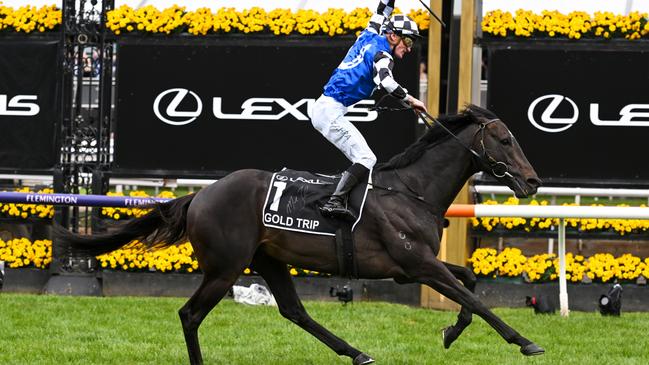
■ ■ ■ ■ ■
Melbourne Cup Winner Stats – Age
Four and five-year-old horses have the best record in the Melbourne Cup. 4YOs have won 46 times and 5YOs have won 44 times.
Recent times have distorted the age history of the Melbourne Cup due to the Northern Hemisphere-bred runners having their age rounded up when racing in Australia.
Rekindling and Cross Counter won the race in 2017 and 2018 respectively. Both were Northern Hemisphere three-year-olds at the time but in racing records it shows them as being four-year-olds when they won the Melbourne Cup.
Only three eight-year-olds have won the Melbourne Cup: Catalogue (1938), Toryboy (1865) and Twilight Payment (2020) who won as a European 7YO racing as an 8YO in Australia.
Six-year-olds have performed well in the race in recent years winning four of the past 10 renewals, while Without A Fight was classified as a seven-year-old when winning the race last year.
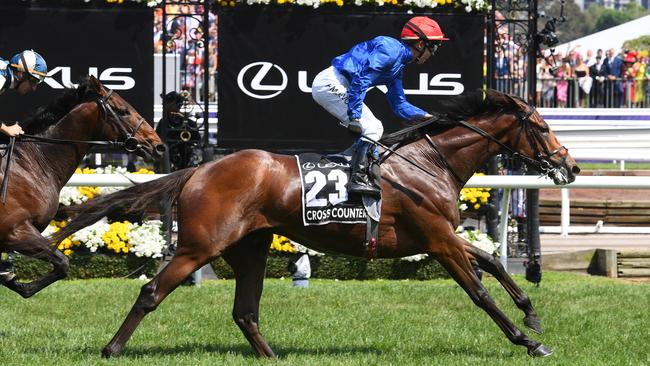
■ ■ ■ ■ ■
Melbourne Cup Winner Stats – Sex
Stallions (entires) hold the record with 73 wins in the race.
Geldings have won the race on 55 occasions, Without A Fight was the most recent to add to this tally last year.
Just 14 mares in total, 12 individuals, have won the Melbourne Cup – Verry Elleegant was the last mare to win the race last year while Makybe Diva is the most famous, winning the race in 2003, 2004 and 2005.
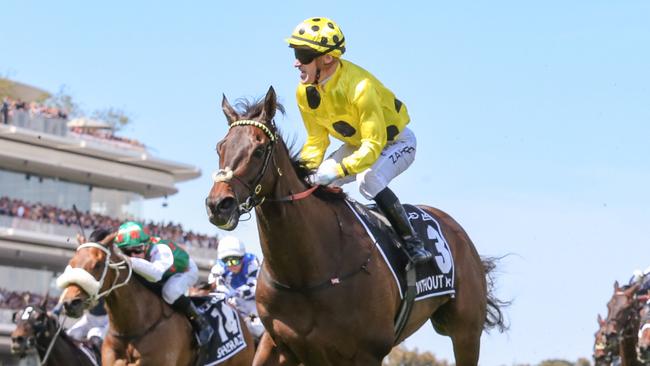
■ ■ ■ ■ ■
Winning horse colours
The colour bay is a clear standout having produced 72 Melbourne Cup winners, almost double the next best, brown with 39 winners including Without A Fight last year.
Chestnuts have won 35 Melbourne Cups, greys have saluted six times while black horses have claimed five victories.
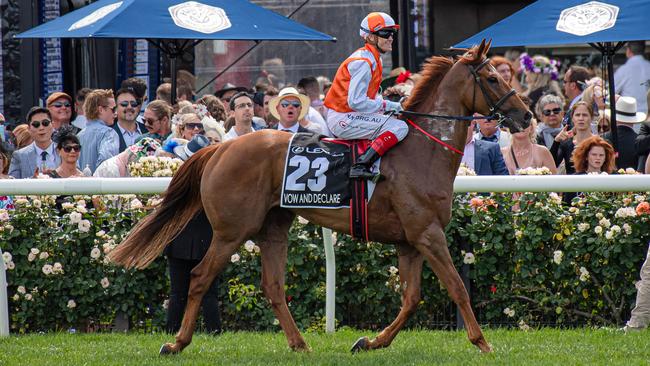
■ ■ ■ ■ ■
Words in Melbourne Cup winners’ names
One-word names have won the most Melbourne Cups with Rekindling in 2017 the last of 88 winners.
Sixty-three horses have won the race with two-word names including 2022 winner Gold Trip and seven winners have had three-word names, Without A Fight was the last in 2023.
No horse has won the Melbourne Cup with a four-word name.
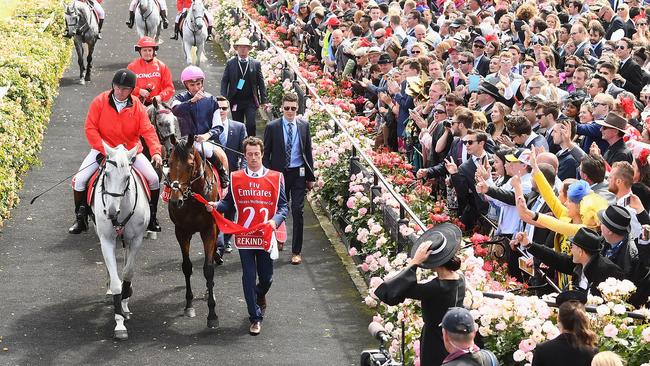
■ ■ ■ ■ ■
Melbourne Cup Weight Facts
Since the year 2000, the most successful Melbourne Cup winning weights have been 51 to 51.5kg, 52 to 52.5kg, 54 to 54.5kg and 56 to 56.5kg. Each weight bracket has won four Melbourne Cups since 2000.
55 to 55.5kg has won three Melbourne Cups since 2000.
The heaviest weight carried to victory since 2000 was Makybe Diva in 2005 when she carried 58kg to win her third Melbourne Cup.
Last year Without A Fight carried 56.5kg to victory while Gold Trip won the race in 2022 carrying 57.5kg.
The lightest weight carried to victory since 2000 was Brew in 2000. He carried 49kg.
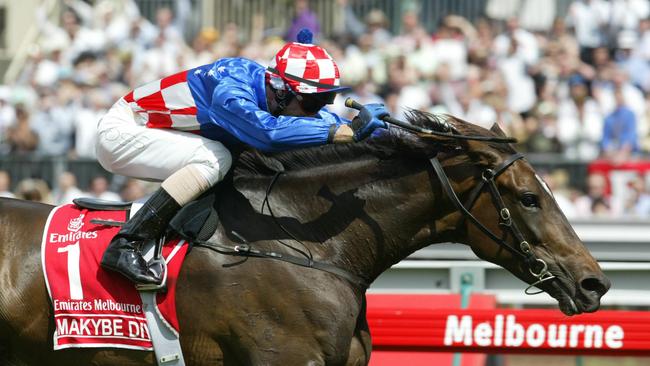
■ ■ ■ ■ ■
Origin of Melbourne Cup winners since 2000
Since 2000, 16 of the Melbourne Cup winners have been bred to Northern Hemisphere time and eight are Southern Hemisphere bred.
Breaking the last 24 winners down further – Five were UK bred, five New Zealand bred, four Irish bred, three Australian bred and two US bred, two German bred and two French bred. The other winner was Japanese bred.
Fifteen of the past 24 winners were trained in Australia, eight were trained in the Northern Hemisphere (four in Ireland, two in France, one in the UK, Germany and Japan) and the other Melbourne Cup winner in the past 21 years was trained in New Zealand.
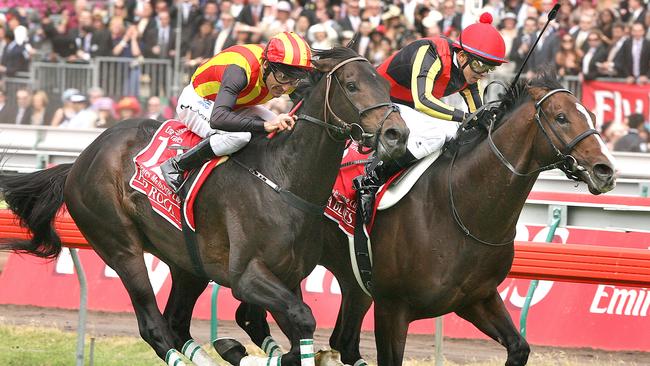
■ ■ ■ ■ ■
Melbourne Cup Winning Colours
White is the most successful Melbourne Cup colour, in the silks of 75 winning jockeys.
Blue has been in the colours of 61 Melbourne Cup winners, narrowly ahead of black with 59 wins.
Red has returned to the winner’s stall on 48 occasions, yellow or gold 46 times, with green winning 23 Melbourne Cups.
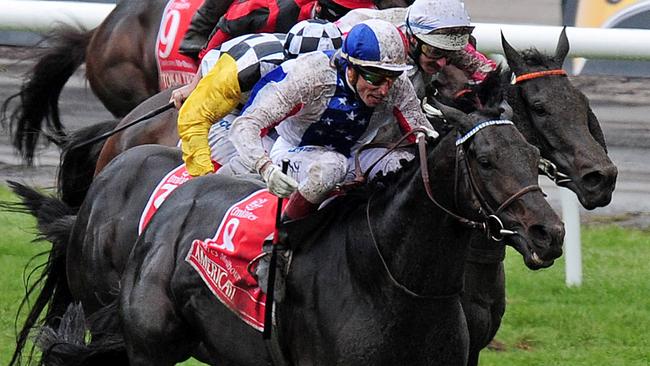
■ ■ ■ ■ ■
Winning Melbourne Cup times
Kingston Rule holds the record for the fastest win in a Melbourne Cup when stopping the clock at 3.16.30 in 1990.
In recent years, three horses have broken into the 3.17s – Protectionist (3.17.71 – 2014), Twilight Payment (3.17.34 – 2020) and Verry Elleegant (3.17.43 – 2021).
Last year’s winner Without A Fight ran the 3200m journey in 3.18.37.
The slowest time recorded since the introduction of barrier stalls was Van Der Hum in 1974 when the Cup was run in horrendous wet conditions. The Kiwi clocked 3.34.10.
The slowest winning time in a Melbourne Cup is shared by Archer in the first Melbourne Cup in 1861 and Lantern in 1864. Both horses ran the distance in 3.52.0.
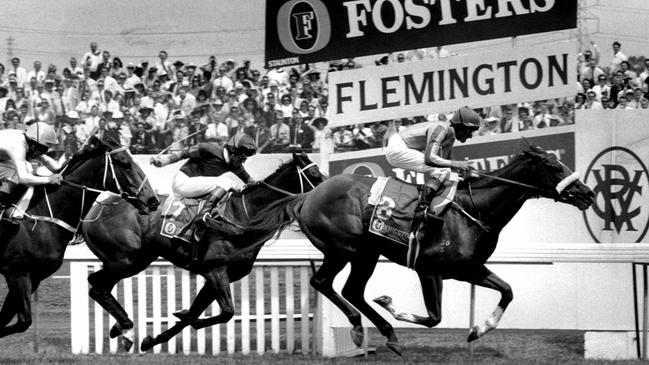
■ ■ ■ ■ ■
Melbourne Cup crowds
The biggest crowd ever recorded at Flemington on Melbourne Cup Day saw 122,736 people witness Makybe Diva win the first of her three Cup in 2003.
In 2021 just 10,000 saw Verry Elleegant win the day due to Covid-19 crowd restrictions after the general public and owners were not allowed on course in 2020 due to the pandemic.
Apart from 2020 and 2021 Covid-19 impacted crowds, the 73,816 patrons on Melbourne Cup Day in 2022 was the lowest crowd on Melbourne Cup Day since 1995.
Last year Flemington attracted 84,492 punters.
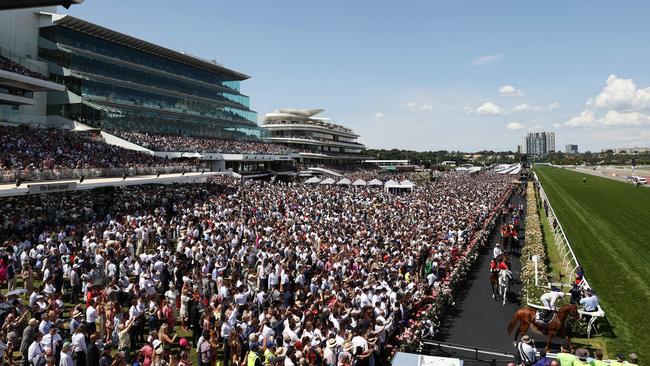
■ ■ ■ ■ ■
Best lead-up form races since 2000
Six of the past 24 Melbourne Cup winners have come through the Cox Plate, Gold Trip the last to do it in 2022 when he checked in ninth at The Valley a week after finishing second in the Caulfield Cup.
The Caulfield Cup has been used successfully as the final lead-up race on six occasions, the latest being last year when Without A Fight became the first horse since Ethereal in 2001 to do the Caulfield and Melbourne Cup double.
The best Northern Hemisphere lead-up race has proven to be the Irish St Leger which has produced two Melbourne Cup winners – Cross Current in 2018 and Twilight Payment in 2020.
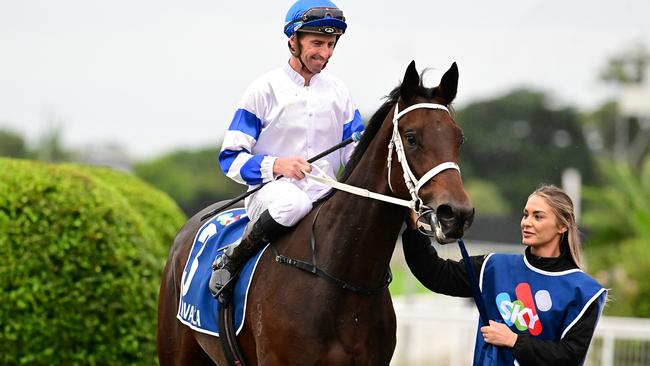
■ ■ ■ ■ ■
Melbourne Cup Betting
Melbourne Cup favourites have won 32 times – Fiorente, a $7 chance in 2013, was the last favourite to salute for the punters.
Phar Lap was the shortest priced favourite to win when $1.75 in 1930, followed by Revenue ($2.75 in 1901) and Archer ($3 in 1862).
Only four $101 roughies have won the Melbourne Cup – The Pearl in 1871, Wotan in 1936, Old Rowley in 1940 and Prince Of Penzance the most recent in 2015.
The average winning price since 2000 is $17.

■ ■ ■ ■ ■
Winning Melbourne Cup Margins
Archer (1862) and Rain Lover (1968) share the record having won the race by eight lengths.
Since 2000, the biggest winning margin has been four lengths – achieved by Protectionist in 2014 and Verry Elleegant in 2021.
The shortest winning margin since 2000 has been a nose, Viewed (2008) and Dunaden (2011) both won by the barest margin recordable.
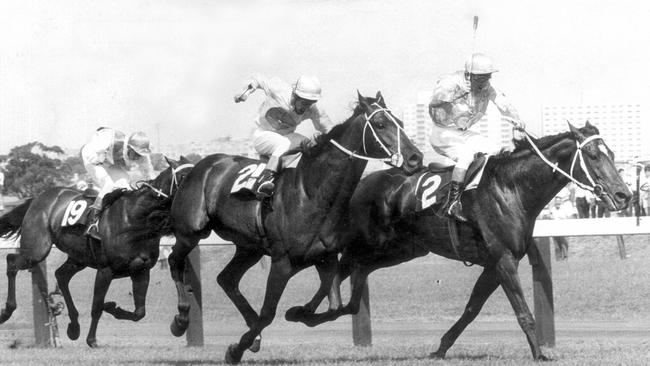
■ ■ ■ ■ ■
The Melbourne Cup curse
The number 18 is something you don’t want near your horse, saddlecloth, or barrier.
Barrier 18 has only produced one Melbourne Cup winner, Verry Elleegant in 2021, the 161st running of the race, while the number 18 has also only been carried to victory once, in 1932, 90 years ago on the great Peter Pan.
Saddlecloth 20 is also cursed, having not won the race since Gaulus carried it to victory in 1897, 127 years ago.
Originally published as Historical data to help you back the Melbourne Cup winner

